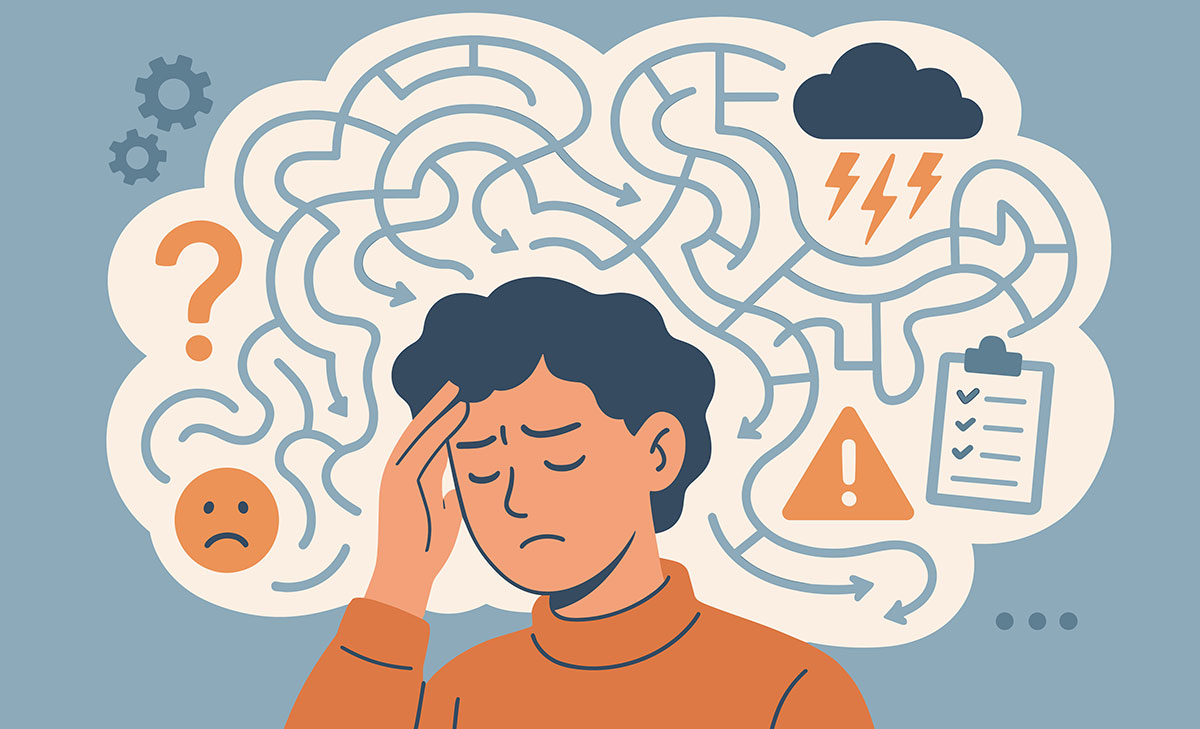Stress is a natural part of life. Everyone experiences it at some point, but for people with mood disorders such as depression, anxiety, or bipolar disorder, stress can have a profound impact. Understanding the science of stress and learning strategies to manage it are essential for maintaining emotional stability and supporting mental health recovery.
Stress affects the brain and body in significant ways. When we perceive a threat or challenge, the body activates the stress response system. Hormones like cortisol and adrenaline are released, preparing us for immediate action. This fight-or-flight response can be lifesaving in short bursts, but chronic stress can lead to dysregulation of mood, sleep disruption, impaired cognitive function, and exacerbation of psychiatric symptoms.
How Stress Affects Mood Disorders
People with mood disorders often have a heightened sensitivity to stress. Research shows that chronic stress can alter brain chemistry, reduce neuroplasticity, and affect areas of the brain responsible for emotion regulation, memory, and decision-making. These changes can intensify depressive episodes, increase anxiety, and trigger mood swings in bipolar disorder.
Stress does not operate in isolation. Genetics, early life experiences, and current circumstances all interact to determine how strongly a person responds to stress. Understanding these factors can help both patients and providers develop personalized strategies to mitigate its effects and strengthen resilience.
Recognizing the Signs of Stress
Awareness is the first step in managing stress. Stress can manifest physically, emotionally, and behaviorally. Common signs include irritability, fatigue, difficulty concentrating, muscle tension, and changes in sleep or appetite. Emotional responses such as worry, sadness, or feeling overwhelmed can indicate that stress is becoming a problem.
By identifying stress early, individuals can intervene before it escalates and worsens mood disorder symptoms. Tracking stress triggers, emotions, and responses can provide valuable insight into patterns and help guide effective coping strategies.
Practical Strategies for Reducing Stress
Managing stress requires a combination of techniques that address both the mind and the body. Here are several strategies I frequently recommend to patients:
- Mindful Breathing and Meditation: Deep breathing exercises and meditation help calm the nervous system, reduce cortisol levels, and promote mental clarity. Even a few minutes daily can make a difference.
- Regular Physical Activity: Exercise is a natural stress reducer. Activities such as walking, yoga, swimming, or strength training help release endorphins, improve mood, and increase resilience to stress.
- Sleep Hygiene: Adequate and consistent sleep is critical. Poor sleep amplifies stress and exacerbates mood disorder symptoms. Creating a bedtime routine, limiting screen time, and optimizing the sleep environment can improve restorative rest.
- Structured Routine: Establishing a daily routine provides a sense of predictability and control, reducing the feeling of chaos that often accompanies stress.
- Social Support: Connecting with trusted friends, family members, or support groups helps buffer the effects of stress. Sharing concerns and receiving emotional support strengthens coping abilities.
- Cognitive Techniques: Cognitive behavioral therapy and other therapeutic approaches teach individuals to reframe negative thought patterns, reduce catastrophic thinking, and manage stress more effectively.
- Relaxation and Hobbies: Engaging in activities that bring joy or relaxation, such as gardening, cooking, reading, or listening to music, provides mental breaks and enhances overall well-being.
The Role of Providers in Stress Management
Mental health providers play a critical role in helping patients recognize and manage stress. Assessment of stress levels should be an integral part of psychiatric evaluation. Providers can educate patients on the biological effects of stress, identify triggers, and collaborate on personalized strategies to reduce its impact.
Providers may also recommend interventions such as therapy, stress reduction programs, or lifestyle modifications to complement medication management. Encouraging patients to adopt small, sustainable changes often results in the most meaningful long-term improvements.
Building Resilience Over Time
While stress is unavoidable, resilience can be developed and strengthened. Resilient individuals are better able to cope with adversity, recover from setbacks, and maintain emotional balance. Strategies for building resilience include maintaining healthy habits, nurturing supportive relationships, practicing mindfulness, and gradually challenging oneself in manageable ways.
Resilience does not mean avoiding stress completely. It means equipping the mind and body with tools to handle stress without it overwhelming emotional stability or worsening mood disorder symptoms.
Integrating Stress Management into Recovery
For individuals recovering from mood disorders, integrating stress management into daily life is essential. Stress reduction is not a one-time effort. It requires ongoing attention and practice. By combining therapy, medication when needed, lifestyle adjustments, and mindful coping strategies, patients can significantly improve their ability to manage stress and maintain mental wellness.
In my practice, I encourage patients to view stress management as a proactive step rather than a reactive measure. Recognizing early signs of stress, responding with practical strategies, and seeking support when necessary are all parts of a comprehensive recovery plan.
Final Thoughts
The science of stress highlights the intricate connection between the mind and body. Understanding how stress affects mood disorders empowers both patients and providers to take intentional steps toward emotional stability. Stress cannot always be eliminated, but its impact can be minimized through awareness, lifestyle strategies, social support, and professional guidance.
Mental health recovery is a journey, and managing stress is a key component of that journey. By adopting strategies that reduce stress and strengthen resilience, individuals can improve their mood, enhance cognitive function, and experience greater overall well-being.
Stress is a natural part of life, but it does not have to control our mental health. With knowledge, practice, and support, we can learn to navigate it effectively and protect our emotional balance for the long term.
